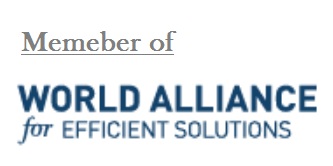In recent weekly discussing in Abangah, Mr. Behnam, the assistant director of group, presented a report which has been published by UNESCO called “World Social Science Report 2013”. You can find a summary here:
The International Social Science Council (ISSC) presents the World Social Science Report 2013. The issue this Report confronts is global environmental change, a phenomenon that encompasses all the biophysical changes happening on the planet’s land and in its oceans, atmosphere and cryosphere. Many of these changes are driven by human activities such as fossil fuel consumption, deforestation, agricultural intensification, urbanization, over-exploitation of fisheries, and waste production. By far the most discussed global environmental change is climate change, one of the biggest global challenges that humanity faces. These challenges are intimately connected to accelerating production and consumption, population growth, socio-economic and cultural globalization, and widespread patterns of inequality. Together they comprise a major feature of contemporary life, and require innovative policy and social transformation.
The social sciences provide indispensable knowledge of the causes and consequences of global environmental change, and of more effective, equitable and durable solutions to today’s sustainability challenges.
Objectives of the Report
The Report has five specific objectives:
_ To develop a social science framing of global environmental change and sustainability;
_ To showcase some unique contributions that the social sciences can make, taking different disciplinary and interdisciplinary perspectives into account, and writing from or about different regions of the world;
_ To explore and assess how well social science knowledge about changing global environments is linked to policy and action;
_ To influence research programming, science policy making and funding, at national, regional and international levels; and
_ To mobilize the wider social science community to engage more effectively, and take the lead in developing a more integrated and transformative science of global change and sustainability.
This report contains six parts:
Part 1: The complexity and urgency of global environmental change and social transformation
Part 2: Social science capacity in global environmental change research
Part 3: The consequences of global environmental change for society
Part 4: Conditions and visions for change and sense making in a rapidly changing world
Part 5: The responsibilities and ethical challenges in tackling global environmental change
Part 6: New approaches to governance and decision making
Key messages and recommendations؛ Global environmental change changes everything
The action steps proposed in the World Social Science Report 2013 are broadly formulated, but if taken seriously and applied in specific contexts, can contribute to realizing a bolder, better, bigger and different social science. Such a transformative change will allow the social sciences to help develop a new, solutions-oriented science of global change and sustainability. The Report itself is intended as a vehicle for mobilization: a starting point for rallying the engagement of social scientists in all disciplines, in different sectors, and in all parts of the world. And it is intended as a basis for the discussion and development, by the ISSC and its members and partners, of a longer-term strategy to strengthen the visibility of social science knowledge, sharpen the social science knowledge base for sustainability, and support social science leadership in integrated research on global change and social transformation. Now is not the time to stay on the sidelines, as climate and global environmental change force society to face staggering human-made crises, and as the world struggles to find a path towards a more secure and sustainable future.
If you need more information, you can connect us.


 sending...
sending...